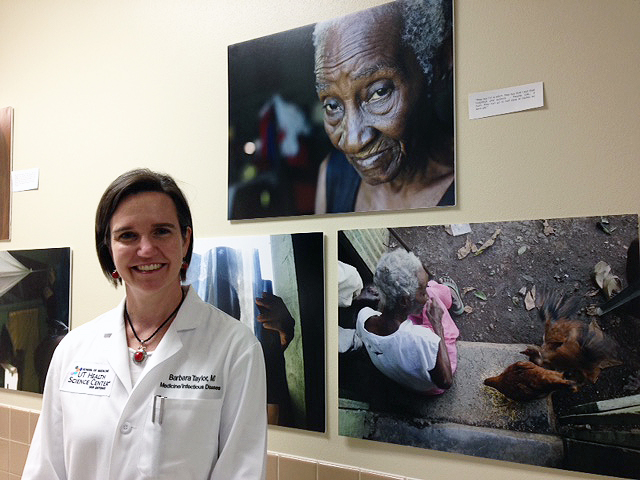Patients receiving life-saving, anti-retroviral treatment for HIV are living longer and healthier lives. But there is a downside: As they age, individuals living with HIV are at greater risk of developing heart disease and other chronic health conditions due to HIV-associated inflammation as well as the medications that control the virus.
This can pose special problems for patients who live in lower- and middle-income Latin American countries, such as Mexico and the Dominican Republic, where resources for primary care are limited, according to a study in the August edition of the journal PLOS ONE.
The international research team includes Barbara Taylor, M.D., M.S., an associate professor in the School of Medicine at The University of Texas Health Science Center at San Antonio. She has had a long-term interest in infectious diseases from her time as a Fulbright Scholar in Mexico more than 20 years ago.
“We already know that many Hispanics are more at risk than non-Hispanics for cardiovascular and metabolic diseases such as obesity and diabetes,” Dr. Taylor said. “In many lower- and middle-income countries, there also is the issue of access to primary care. HIV is often treated in HIV clinics with government-provided HIV medications, but those clinics often don’t offer primary care, leaving these other chronic diseases untreated.
“Unfortunately, this sometimes happens even in underserved areas of the U.S., such as South Texas. Even though we are in a high-income country, access to care can be an issue in rural or low-income areas where there aren’t many health care providers. We can get HIV medications for our patients through federal assistance programs, but it’s harder to get insulin or other medications to help patients control their diabetes,” she said.
The infectious disease specialist said the research team studied the prevalence and incidence of diabetes, obesity and dyslipidemia (high level of lipids, such as cholesterol, in the blood) in a group of Hispanics diagnosed with HIV just beginning treatment in the Dominican Republic.
The study was conducted from 2007 through 2013 with patients followed for nearly three years.
Analyses were conducted for three groups of conditions: diabetes and impaired fasting glucose; overweight and obesity; and cardiometabolic risk.
“Twenty years ago, a diagnosis of HIV was a death sentence,” Dr. Taylor said. “In order to successfully continue combating the HIV epidemic, we have to start responding to the long-term consequences of chronic HIV infection, such as heart disease prevention, healthy lifestyle promotion and ensuring that we’re not just treating the virus, that we’re providing care for the entire person.”



